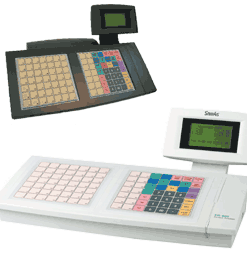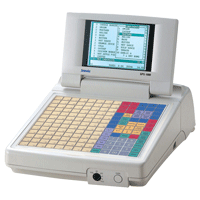A modular cash register is a type of cash register system that consists of separate, interchangeable components or modules that can be customized and configured according to the specific needs of the business. Unlike traditional cash registers that come as single integrated units, modular cash registers allow for flexibility in terms of functionality, scalability, and adaptability to different retail environments. Here are some key features and aspects of modular cash registers:
1. **Modular Design**: Modular cash registers are designed with a modular architecture, where various components such as the cash drawer, receipt printer, customer display, barcode scanner, and payment terminal are separate units that can be combined or arranged in different configurations. This modular design allows businesses to mix and match components based on their requirements and preferences.
2. **Customization Options**: With modular cash registers, businesses have the flexibility to customize their POS (Point of Sale) systems to meet their specific needs and workflows. They can choose from a range of compatible components and peripherals to create a tailored POS solution that best suits their business operations, industry requirements, and customer service objectives.
3. **Scalability**: Modular cash registers offer scalability, allowing businesses to easily expand or upgrade their POS systems as their needs grow or change over time. Additional modules or peripherals can be added to the existing setup to accommodate increased transaction volume, new product lines, or expanded services without having to replace the entire system.
4. **Interoperability**: Modular cash registers are designed to be interoperable with a wide range of POS hardware and software components, ensuring compatibility and seamless integration with third-party devices and systems. This interoperability enables businesses to leverage existing investments in POS infrastructure, peripherals, and software applications while adding new modules as needed.
5. **Flexibility**: Modular cash registers provide flexibility in terms of deployment options, allowing businesses to choose between fixed or mobile setups based on their operational requirements. They can set up stationary POS terminals at checkout counters or deploy mobile POS solutions using handheld devices or tablets for greater flexibility and mobility in serving customers.
6. **Ease of Maintenance**: Modular cash registers are generally easier to maintain compared to traditional integrated cash registers. If a component malfunctions or requires servicing, it can be easily replaced or repaired without disrupting the entire POS system. This minimizes downtime and ensures continuous operation of the retail environment.
7. **Cost Efficiency**: While modular cash registers may have a higher initial investment compared to entry-level integrated cash registers, they offer long-term cost efficiency and return on investment (ROI) due to their flexibility, scalability, and adaptability. Businesses can invest in the specific components they need initially and add additional modules as their budget allows or their requirements evolve.
8. **User-Friendly Interface**: Despite their modular nature, cash registers are designed to provide a user-friendly interface for cashiers and staff. Intuitive software interfaces, touchscreen displays, and ergonomic design features ensure smooth operation and efficient transaction processing, minimizing training time and errors.
Overall, modular cash registers offer businesses the advantages of flexibility, scalability, customization, and interoperability, allowing them to create tailored POS solutions that meet their unique needs and provide a seamless shopping experience for customers. By leveraging the modular architecture and customizable features of these systems, businesses can optimize their POS operations, improve efficiency, and drive business growth.
Modular Cash Register
Modular Cash Register


